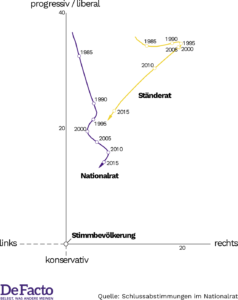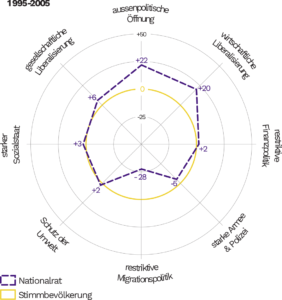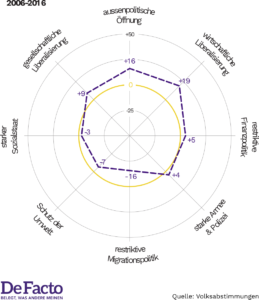In a post on DeFacto, Michael Hermann argues that in Switzerland the conflict between voters and “political elites” actually has receded. According to Hermann, popular votes helped clarify where voters disagreed with parliamentarians, and this led policy makers to adjust. The figures illustrate how over time, votes in the two chambers of parliament converged towards outcomes in popular votes. Campaigns supported by the right-wing SVP party may have contributed to these developments.
Topics:
Dirk Niepelt considers the following as important: Elite, Notes, Political conflict, SVP, Switzerland, Vote, Voter
This could be interesting, too:
Fintechnews Switzerland writes Top 12 Fintech Courses and Certifications in Switzerland in 2025
Claudio Grass writes “Does The West Have Any Hope? What Can We All Do?”
Dirk Niepelt writes Does the US Administration Prohibit the Use of Reserves?
Dirk Niepelt writes “Pricing Liquidity Support: A PLB for Switzerland” (with Cyril Monnet and Remo Taudien), UniBe DP, 2025
In a post on DeFacto, Michael Hermann argues that in Switzerland the conflict between voters and “political elites” actually has receded. According to Hermann, popular votes helped clarify where voters disagreed with parliamentarians, and this led policy makers to adjust. The figures illustrate how over time, votes in the two chambers of parliament converged towards outcomes in popular votes. Campaigns supported by the right-wing SVP party may have contributed to these developments.



